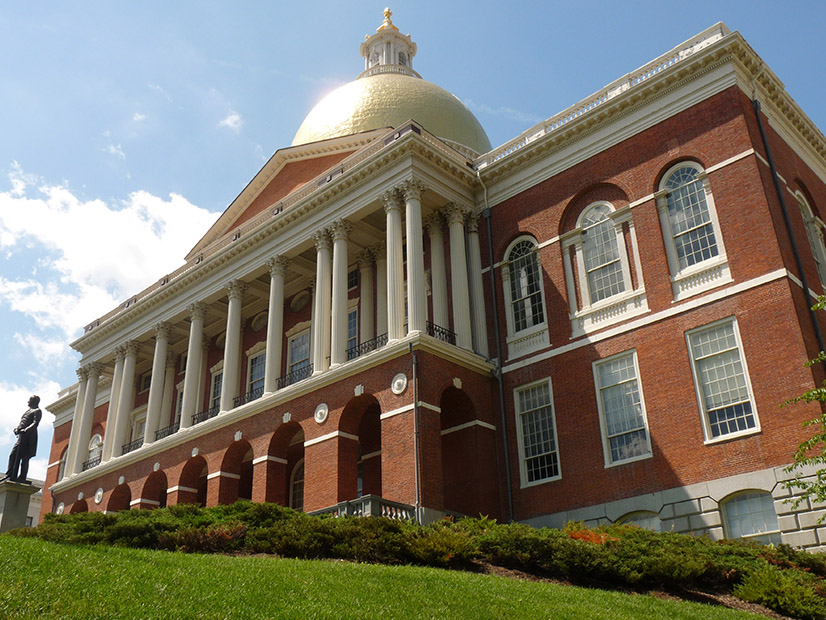
After a few days of wavering, Massachusetts Gov. Charlie Baker signed a compromise climate and clean energy bill sent to his desk by the state legislature.
The wide-ranging bill, a follow-up to last year’s legislation setting emissions targets, aims to act on those goals by reducing emissions in the state from generation, transportation, buildings and more, with a heavy focus on offshore wind.
The new law removes the price cap for wind developers, while also adding new tax incentives, grants and loans for the industry. And it will enable the state to work with other New England states and the federal government to procure transmission for offshore wind.
“The sweeping energy bill signed into law today showcases why Massachusetts continues to be a national leader in offshore wind development,” said John Begala, vice president of federal and state policy at the Business Network for Offshore Wind. “The procurement reforms and historic investments will help the state fully realize … economic and environmental benefits, leading to a stronger offshore wind industry with greater job creation, new economic activity, and a more reliable and affordable power sector.”
The law also takes on transportation emissions, banning the sale of new gas-powered vehicles after 2035, requiring the installation of new charging stations across the state and updating Massachusetts’ electric vehicle rebate to include more eligible vehicles. (See Mass. Legislators Reach Deal on Clean Energy Bill.)
The EV portions have excited advocacy groups like the Green Energy Consumers Alliance, as well as those in the private sector who are seeing growing business from the early days of the state’s EV boom.
In a recent interview with RTO Insider, Matthew Guarracino, the CEO of Lynnfield-based JM Electrical, said that his firm has been seeing more and more demand for charging infrastructure installations. The new law will only increase that, he said.
“The vehicles are one half of it, and the vehicles are great, but the challenge is getting the infrastructure put in the same places as the vehicles. The infrastructure is lagging a bit behind,” Guarracino said. “So it’s great to see the federal government and state putting money behind this to move along that infrastructure.”
One of the bill’s most controversial provisions, which almost led Baker to sink it, will let 10 communities in Massachusetts ban fossil fuel hookups in new construction, in an attempt to reduce emissions from buildings.
That section, along with the rest of the bill, has enthused environmental advocates.
“This bill is a big deal,” Ben Hellerstein, state director for Environment Massachusetts, said in a statement. “With this bill becoming law, leaders in Massachusetts of all political stripes are showing that states can take meaningful climate action. This bill gives me hope that we can work together to build a future where all of us can thrive. We’re thrilled for our commonwealth to play a key role in building a world powered by 100% clean energy.”
Baker had tried to make several significant amendments, including to weaken the fossil-free building pilot, in the waning hours of the legislative session. But lawmakers left most of them on the table and sent it back to the governor’s desk for a signature or veto.
The governor eventually signed, but not without regrets.
“Because the legislature rejected virtually every meaningful amendment I put forth, this bill does not have the same shared sense of purpose that all previous climate legislation embodied, which is unfortunate,” he wrote in a signing letter.
“We all know the commonwealth faces significant challenges in dealing with two existential threats: climate change, and housing supply and affordability. This bill does not move Massachusetts in the right direction on housing. And the process by which many provisions in this bill are implemented will determine if this bill will make significant progress toward our climate goals,” Baker continued.
Funding for parts of the bill is also still wrapped up in a separate piece of legislation that failed to make it past the legislative deadline, but key lawmakers say they’re confident it will come together in informal sessions over the coming weeks.


